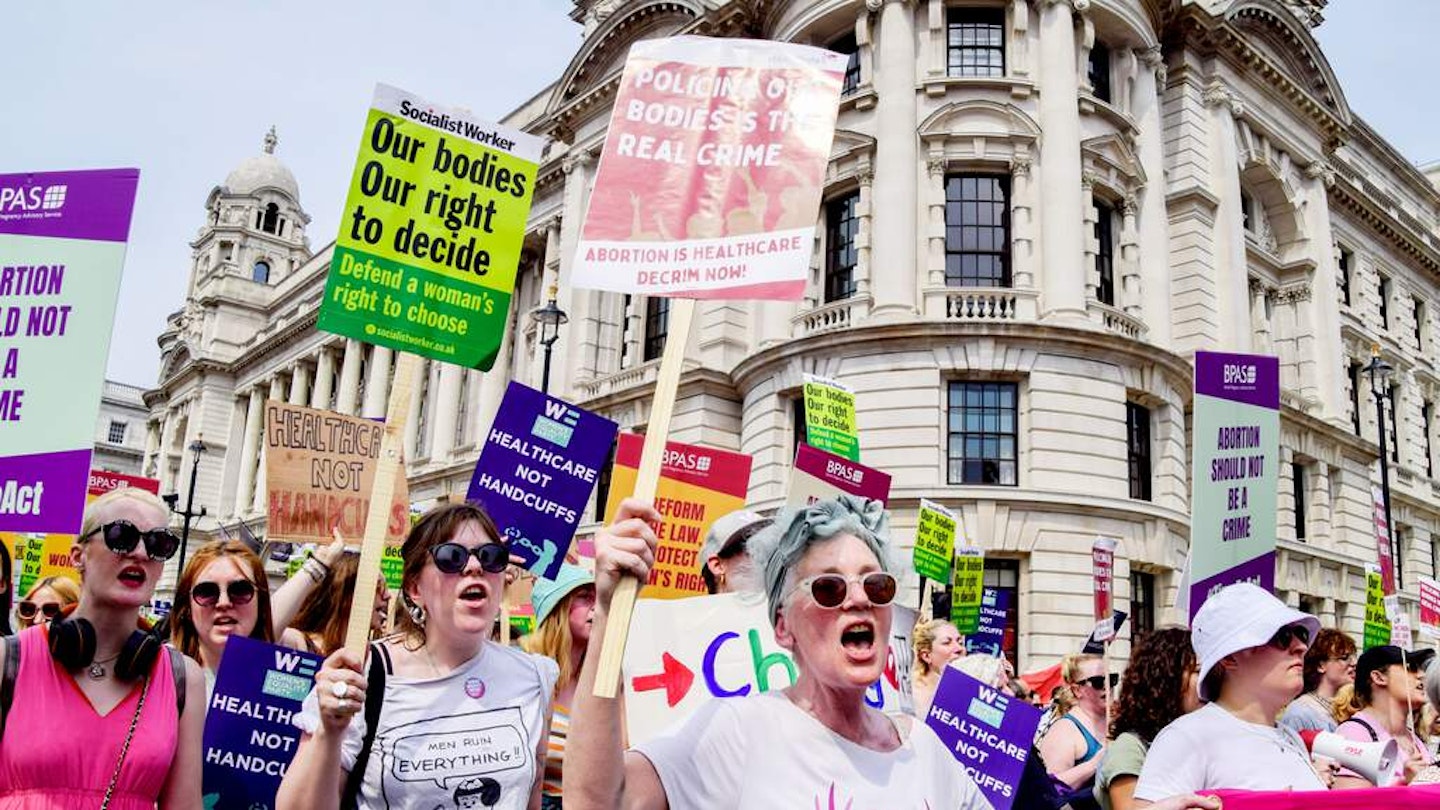The pace of change is always slower than we hope. Last year was the first that women in leadership positions in the top FTSE 350 companies reached more than 30%. The Lionesses might have taken us to national greatness at the Euros, but they still earn less in a year than Harry Kane does in a week. And when it comes to our bodies, the rights of women in England and Wales are stuck in the past.
Until 1967 abortion carried a life sentence in England because of the 1861 Offences Against the Person Act. When the 1967 Abortion Act came into force, it permitted abortion up to 24 weeks, but the initial 1861 law was never repealed – abortion still carries criminal sanctions. Women must convince at least two doctors that continuing with an unwanted pregnancy will damage their physical or mental health in order to be allowed to end it. In contrast to every other country in Western Europe, Canada, Australia and New Zealand, women here do not have a right to abortion ‘on request’.
Now, a cross-party group of MPs has put forward an amendment to decriminalise abortion before 24 weeks in England and Wales. This would not change the time limits under which an abortion is available, it would simply place abortion before 24 weeks on a par with other medical treatments, where it can be authorised and carried out by a single approved clinician, based on the consent of the woman. This would preserve a woman’s bodily autonomy and right to choose, as well as bringing us in line with other countries. It would also have a knock-on effect on clinic accessibility and wait times, freeing up doctors’ time.
Abortion is a time-sensitive procedure – the earlier a woman can access healthcare, the less invasive the treatment. Yet our current restrictions mean access requires multiple appointments. Research has found that 49% of women who attempted to illegally access abortion medication did so because of access barriers to clinics, such as work or childcare commitments, extensive wait times, proximity to a clinic or lack of eligibility for free NHS services. The need for repeated authorisation from separate doctors only exacerbates these problems.
The Government is yet to implement legislation to protect clinics with buffer zones, which MPs voted in favour of more than two years ago.
Stella Creasy
Rising demand plus diminishing investment in funding and specialist training, as well the closure of sexual health services during the pandemic, means clinics are struggling. MSI Reproductive Choices UK found that they treated 30% more women in 2023 compared with 2022. Many of these women spent hours travelling due to local providers being unable to cope with demand. Even when women can get an appointment, they are often deterred from entering clinics due to harassment from anti-abortion protestors. The Government is yet to implement legislation to protect clinics with buffer zones, which MPs voted in favour of more than two years ago.
The decision to have an abortion is an intensely personal one, and it should be considered a healthcare matter – not one where the spectre of police or prosecutor involvement guides decisions and causes delays. If you think it’s time for women to be trusted rather than put on trial, ask your MP to vote for New Clause 40 to be included in the Criminal Justice Bill.
